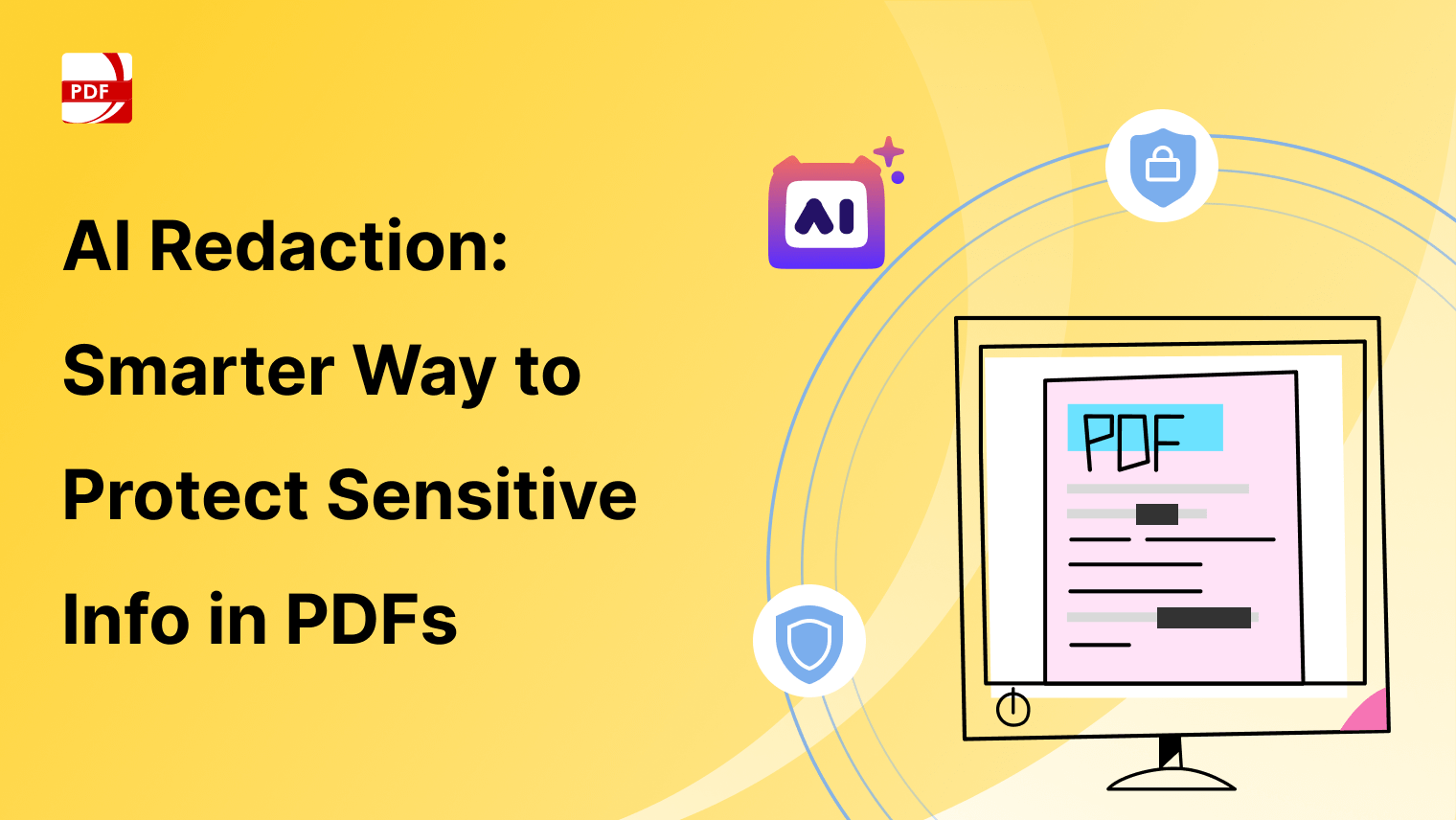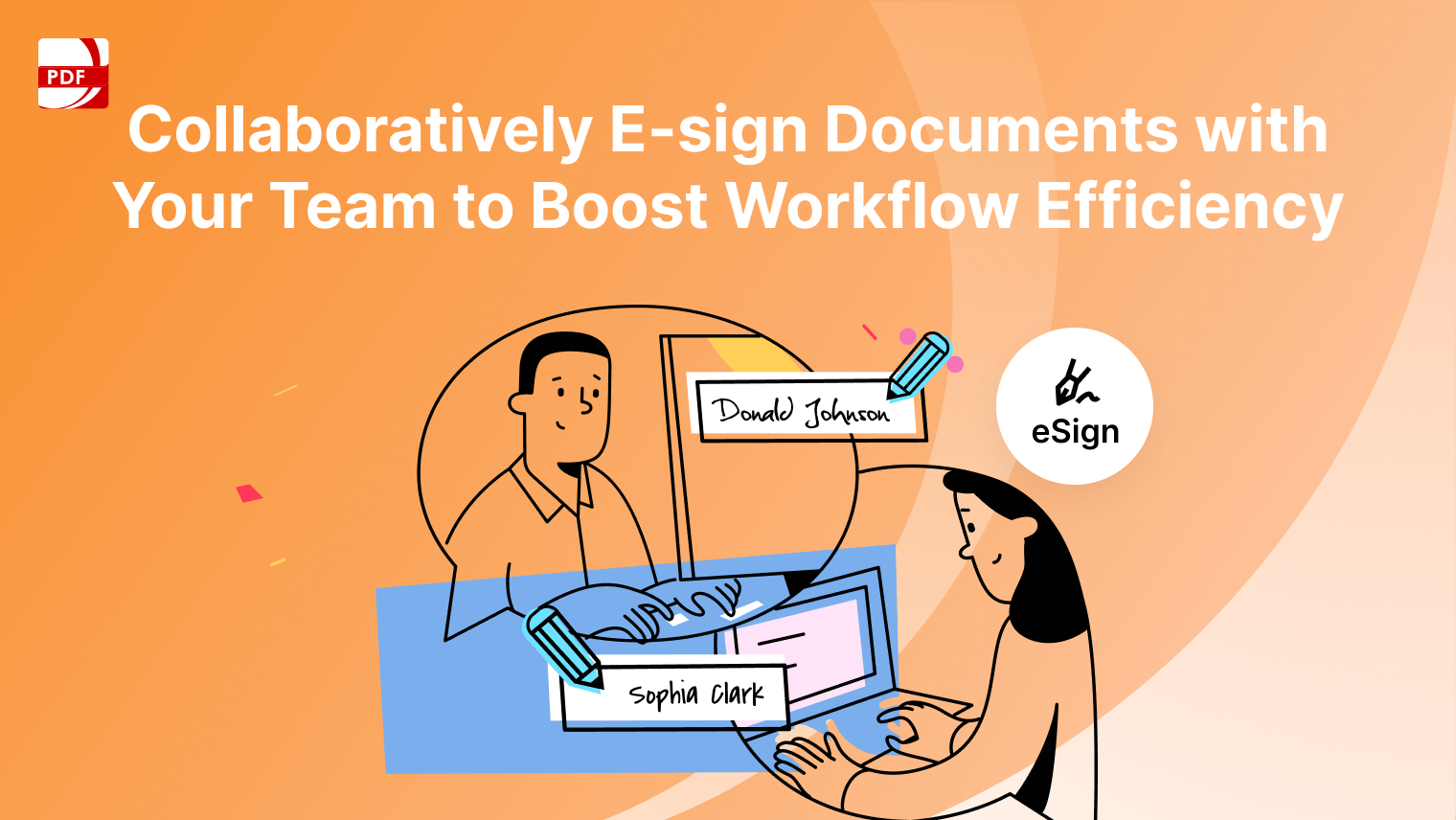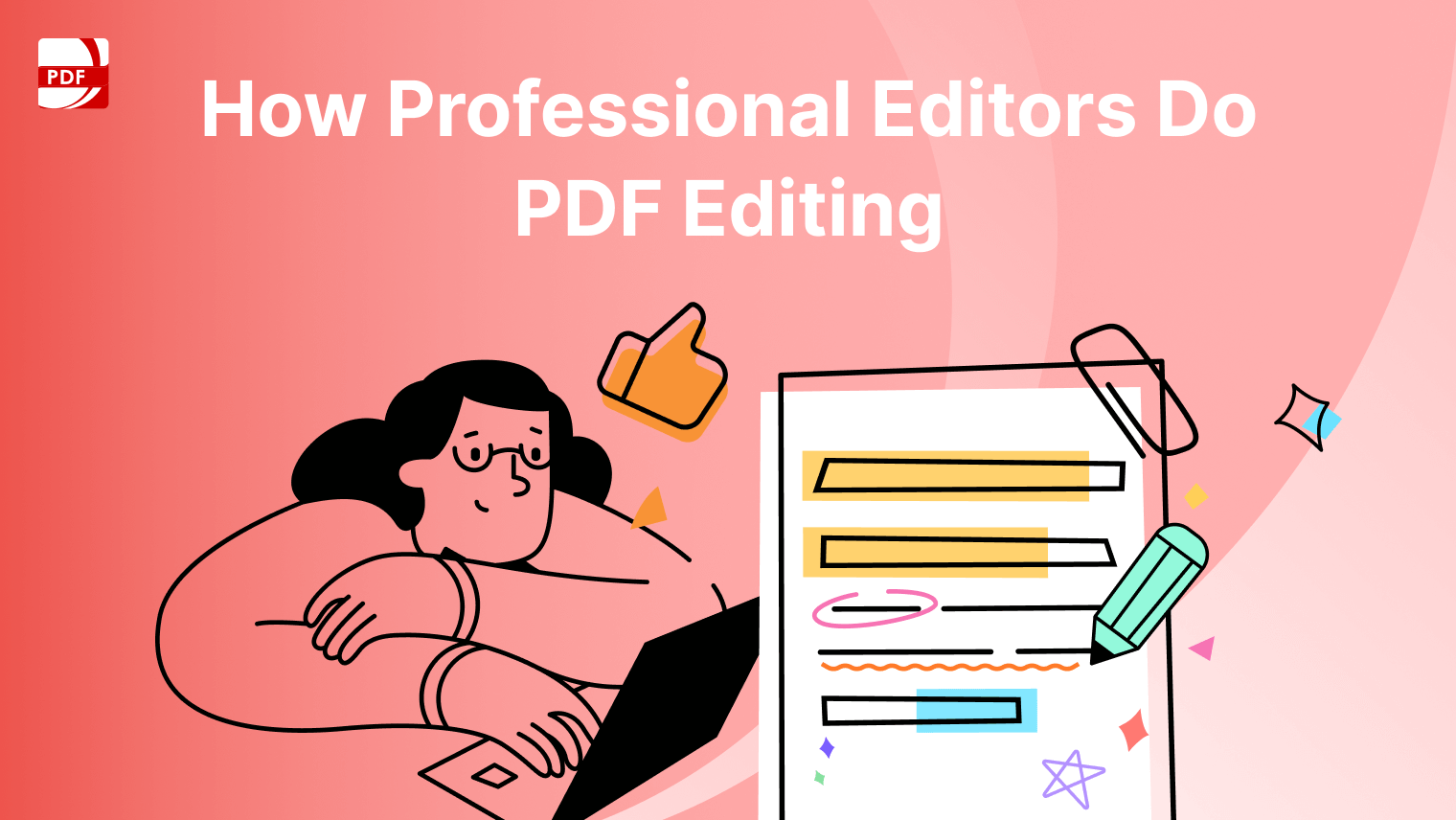With the increasing complexity of construction projects and the need for precise accounting, leveraging the right technology becomes paramount.
In this blog, we will delve into the world of construction accounting and explore the top five software tools that empower construction professionals to streamline their financial processes, enhance project management, and ensure the fiscal health of their endeavors. Looking for material to use your new software tools on? Download and fill in our free construction quote template.
Overview
| Software | Pricing |
| PDF Reader Pro |
|
| Procore |
|
| Sage 100 Contractor |
|
| Viewpoint Vista |
|
| Quickbooks Desktop Construction |
|
1. PDF Reader Pro
If you are considering PDF Reader Pro for the construction industry, here are some general features that are commonly useful in the construction sector:
Image Source: PDF Reader Pro
- Annotating and Marking Up Plans: Construction professionals often need to annotate and mark up architectural plans and drawings. Look for features that allow you to add comments, highlight sections, and draw directly on the PDF.
- Collaboration and Sharing: Construction projects involve collaboration between various stakeholders. A PDF reader with collaboration features, such as the ability to share annotated documents or provide feedback, can be beneficial.
- Measurement and Scaling: Some construction-related PDF tools provide measurement and scaling features, allowing users to measure distances, areas, and angles directly on the plans.
- Form Filling and Data Extraction: Construction documents often include forms and reports. A PDF tool that allows for easy form-filling and data extraction can streamline workflows in the construction industry.
- Compatibility and Integration: Ensure that the PDF reader integrates well with other software commonly used in the construction industry, such as project management tools or accounting software.
The simplest method to getting PDF Reader Pro is to click the download button below:
2. Procore
Procore is a comprehensive construction management software package that includes accounting features. It allows for project management, collaboration, and financial tracking for bank reconciliation. It helps construction professionals manage costs, budgets, and invoices.
Image Source: Procore
-
Budgeting and Forecasting: Procore provides tools for creating custom pricing and managing project budgets. Construction professionals can set up detailed budgets, track costs and additional charges, and use forecasting features to predict future expenses.
-
Job and Labor Costs: Construction accounting in Procore includes robust job costing capabilities for efficient cash flow through company bank accounts. Users can allocate actual costs to specific tasks, track expenses, and analyze the financial performance of individual jobs or projects.
-
Change Order Management: Handling change orders is a critical aspect of construction accounting. Procore allows users to document and manage change orders efficiently, ensuring that financial adjustments are accurately reflected in the project's accounting records.
-
Invoice Management: Procore streamlines the invoicing process by allowing users to create and manage invoices to avoid cost overruns directly within the platform. This includes progress invoicing based on project milestones and completion.
-
Commitments and Subcontractor Management: Construction projects involve various commitments, including contracts with subcontractors, construction managers, and suppliers. Procore helps manage these commitments, tracking subcontractor performance, managing contracts, and ensuring compliance with financial agreements.
You can also check our resume resource on Mechanics Lien Form PDF Template.

3. Sage 100 Contractor
Sage 100 Contractor, formerly known as Sage Master Builder, is a popular accounting software designed for the construction industry. It offers features such as job costing, project management, and payroll, helping contractors manage finances efficiently.
Image Source: Sage
-
Job Costing: Sage 100 Contractor provides comprehensive job costing functionality, allowing construction professionals to track and manage costs associated with each project. This includes labor, material costs, equipment, and overhead expenses.
-
Estimating: The software includes estimating tools that enable users to create accurate and detailed project estimates for accurate records later on. This feature helps in the pre-construction phase by forecasting costs and establishing a solid foundation for project budgets.
-
Project Management: Sage 100 Contractor supports project management by providing a wide range of tools for scheduling, cost control, document management, and collaboration. Project managers can efficiently organize tasks, share documents, and communicate with team members.
-
Subcontractor Management: This financial software facilitates the management of subcontractors, including the creation and tracking of subcontractor agreements, payments, and performance. This financial tool helps ensure smooth collaboration with external partners about resource allocation and more.
-
Billing and Invoicing: Sage 100 Contractor streamlines the billing process with features for progress billing, time and material billing, and other invoicing methods. This ensures accurate and timely billing for completed project milestones.
4. Viewpoint Vista
Viewpoint Vista is a construction management software that includes accounting capabilities. It covers various aspects of construction project management, including accounting, job costing, and project collaboration. It's suitable for contractors and construction companies of different sizes.
Image Source: Viewpoint Vista
-
Project Management: Viewpoint Vista supports project management with tools for scheduling, financial record management, and collaboration. Project managers can efficiently organize tasks, share documents, and communicate with team members, fostering collaboration and communication.
-
Billing and Invoicing: The software streamlines the billing process, offering features for progress billing, expense tracking, time and material billing, financial statements, and other invoicing methods. This ensures accurate and timely billing for completed project milestones and job costs.
-
Subcontractor Management: The platform's accounting tools facilitate the management of subcontractors, allowing users to create and track subcontractor agreements, payments, and performance. This helps in maintaining strong relationships with external partners.
-
Payroll Management: Viewpoint Vista provides payroll management features that enable construction companies to process construction payroll efficiently. This includes handling wage rates, tax deductions, and compliance with labor regulations, especially for larger companies.
-
Reporting and Analytics: The software offers robust reporting and analytics tools, allowing users to generate a variety of financial and project-related reports. This helps in analyzing project performance, tracking budgets and additional costs, equipment tracking, and making informed decisions.
You can also check our recommendations for the 10 Best Black Friday Software Deals for 2023.

5. QuickBooks Desktop Construction
QuickBooks Desktop (as opposed to Quickbooks online) offers a specialized version for the construction industry with the same core functionality. It provides features like job costing, progress invoicing, and financial reporting tailored to the needs of construction businesses.
Image Source: QuickBooks
-
Progress Invoicing: QuickBooks Desktop Construction supports accurate invoices based on project milestones. This additional feature allows construction companies to bill clients for completed work stages rather than waiting until the project's completion.
-
Advanced Reporting: The software offers advanced reporting tools specific to construction accounting. Users can generate detailed financial reports, job profitability reports with time tracking, and other project-related analytics to gain insights into their financial performance.
-
Change Order Management: Handling change orders is a common aspect of construction projects. QuickBooks Desktop Construction provides features for documenting and managing change orders, ensuring that financial adjustments are accurately reflected in the project's records.
-
Payroll Management: The software includes payroll management capabilities tailored to the construction industry. Users can manage wage rates, track employee hours, and ensure compliance with labor regulations for tax preparation.
-
Vendor and Subcontractor Management: QuickBooks Desktop Construction helps manage vendors and subcontractors, enabling users to track contracts, payments, and performance with built-in reports. This feature facilitates efficient collaboration with external partners.
Construction Accounting Software Tools: FAQs
What is construction accounting software?
Construction accounting software programs are specialized types of software designed to meet the unique financial and project management needs of the construction industry. It typically includes features for job costing, project management, budgeting, invoicing, and other functionalities specific to construction projects.
Why do construction firms need accounting software?
Construction companies need accounting software to efficiently manage their finances, track project costs, handle invoicing and billing, manage payroll, and generate accurate financial reports. These tools help streamline accounting processes and ensure compliance with industry-specific regulations.
What features should I look for in construction accounting software?
Key features to consider in construction accounting software include job costing, cash flow statements, enterprise resource planning, estimating, progress invoicing, project management, payroll management, vendor and subcontractor management, document management, integration with accounting systems, and advanced reporting capabilities.
How does construction accounting software benefit my business?
Construction accounting software can benefit your business by improving efficiency in financial management as a payroll solution, reducing errors in calculations, providing real-time insights into project costs, facilitating collaboration among project stakeholders, and helping in compliance with industry regulations.
Can construction accounting software integrate with other business software?
Yes, many business accounting software tools offer integration capabilities with other business software. This may include integration with general accounting software, project and service management tools, document management systems, and more. Integration is an ideal solution that helps in maintaining consistency and reducing the need for manual data entry.
Is construction accounting software suitable for small businesses?
Yes, many financial management tools also cater to the needs of small businesses. These solutions often scale to accommodate the size and complexity of the construction projects undertaken by small to mid-sized construction companies and commercial contractors.
How secure is the data in construction accounting solutions?
Reputable construction accounting software providers prioritize data security. They often implement essential features like encryption, secure authentication methods for bank transfers, and regular data backups to protect sensitive financial information. It's essential to choose software from trusted vendors with a proven track record in data security.
Can construction accounting software be accessed remotely?
Many modern construction accounting software solutions offer cloud-based options, allowing users to access the software remotely from different locations. This feature is especially beneficial for construction professionals who need to collaborate on projects from various job sites using their chosen project management solution.
How do I choose the right construction accounting software for my business?
When choosing construction accounting software, consider factors such as the size and nature of your projects, the specific needs of your business, ease of use, integration capabilities, customer support, and reviews from other construction professionals. A trial or demo period may also help you assess how well the software meets your requirements.
Is training provided for using construction accounting software?
Many types of software for contractors offer training resources, tutorials, and customer support to help users learn how to use the software effectively. Some may provide on-site or online training sessions, while others offer documentation and video tutorials like job costing modules for self-paced learning.
Before you choose any construction accounting software, it's essential to consider the specific needs and size of your construction business, as well as the advanced features of the software options available in the market. Additionally, user reviews and testimonials can provide valuable insights into the user experience and performance of these tools.








 Free Download
Free Download  Free Download
Free Download 





 Support Chat
Support Chat